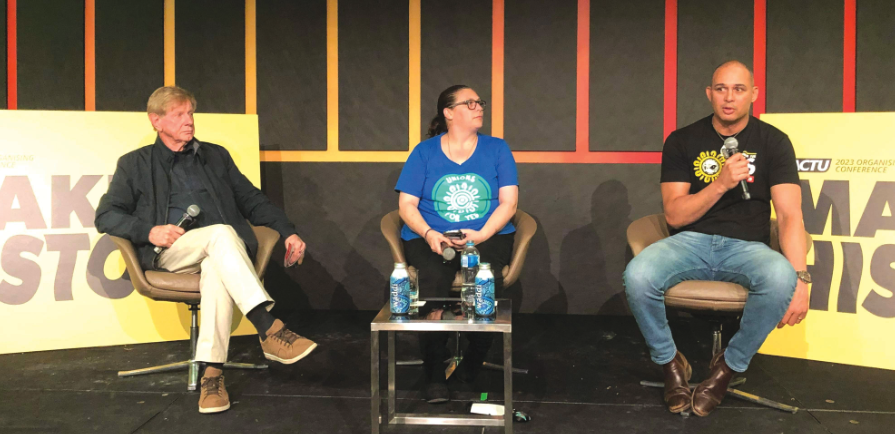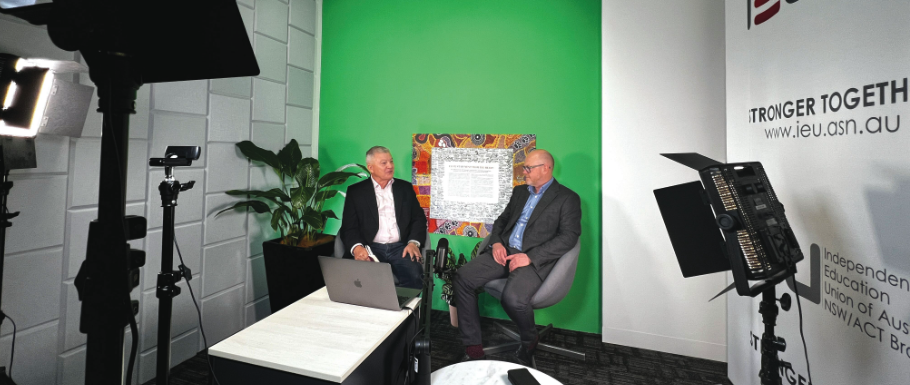
It was a privilege indeed to be in conversation with Thomas Mayo and Kerry O’Brien. IEU members experienced an immersion deep inside the ‘yes’ vote campaign during an IEU webinar, In Conversation with Thomas Mayo and Kerry O’Brien, discussing the Voice to Parliament, on 1 August.
A simple analysis can be made – an injustice is being corrected. The opportunity for Australia to be perceived as being entirely fair and inclusive cannot be wasted.
Unions have and always will be vehicles for necessary reform. The following text is based on some of the discussion in the hour-long session, which I moderated with Professional Engagement Officer Pat Devery.
Mayo: “This is a really a commonsense proposal that we have a voice enshrined in the Constitution. Other nations, Scandinavia, Canada, New Zealand, have representative bodies from which the Indigenous peoples can be heard. It’s fear mongering that this is going to be powerful enough to cause chaos in our democracy. The Solicitor General himself has debunked this myth of it causing chaos in our democracy.
O’Brien: Another one of the claims is that it would be somehow unhealthy for our Constitution to single out one group of people in Australian society. The Solicitor General says the Constitution would be enhanced and democracy would be strengthened. Those who try to argue that there’s some kind of special privilege being handed to Indigenous people, who have been the most downtrodden, the most marginalised group in this country, to our great shame ever since Phillip planted the flag, are wrong. Academics and the Solicitor General all say the same thing. There is nothing to fear or worry about in what this referendum would deliver. It would enhance us as a nation.





































































































































